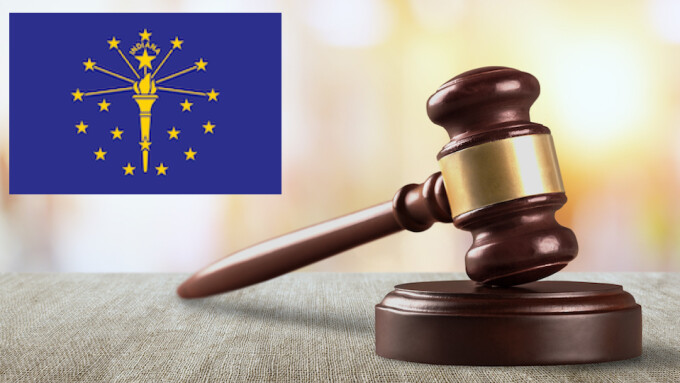INDIANAPOLIS — Free Speech Coalition (FSC) and several industry stakeholders filed a lawsuit in the United States District Court for the Southern District of Indiana on Monday, aiming to block the state’s age verification law.
FSC released a statement noting that in addition to challenging the merits of Indiana’s SB 17, the plaintiffs have requested an expedited preliminary injunction before the law goes into effect July 1.
As XBIZ reported, Indiana’s Republican governor, Eric Holcomb, signed SB 17 into law in March. The law was authored by Republican Sen. Mike Bohacek as the state’s copycat version of the age verification bills being sponsored around the country by anti-porn religious conservative activists, and it requires age verification for material that Indiana deems “harmful to minors.”
According to the plaintiffs, SB 17 violates the First, Fifth, Eighth and 14th Amendments, as well as Section 230, Courthouse News reported.
“Despite impinging on the rights of adults to access protected speech, it fails strict scrutiny by employing the least effective and yet also the most restrictive means of accomplishing Indiana’s stated purpose of allegedly protecting minors,” the complaint argues.
The plaintiffs also allege that SB 17 imposes burdens on adults, “the vast majority of whom value their online privacy and do not wish to expose exploitable personal data simply to view constitutionally protected material they have every right to view. The high risk of data breaches and leaks resulting from compliance with the Act serves as an unavoidable barrier preventing adults from divulging their information over the internet.”
The lawsuit, filed against Indiana Attorney General Todd Rokita, now joins similar FSC-led challenges in Utah and Texas, which are pending before the courts.
Co-plaintiffs include Aylo Premium, Aylo Freesites, Webgroup Czech Republic, NKL Associates, Sonesta Technologies, Sonesta Media, Paper Street Media, Neptune Media, Mediame and Midus Holdings.
“We will continue to fight for the rights of adults to access the internet free of shame and surveillance,” said FSC Executive Director Alison Boden. “While they may sound reasonable on their face, laws like SB 17 have effectively functioned as state censorship. These laws have been a failure on every front, and we must take action to protect both the consumers and producers of expressive works from this harmful government overreach.”







